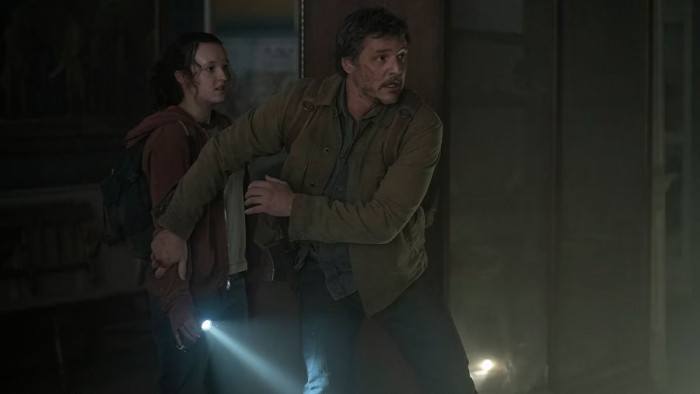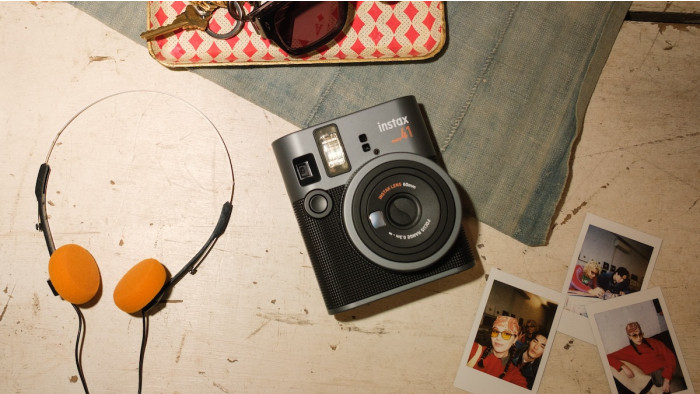Preconceptions are a lot like greatest hits albums. You know you shouldn’t really have them, but in reality, they involve a lot less work and are easy to listen to.
They’re also a lot like analogies in this introduction: very hard to avoid. Which is why, despite being trained, Jedi-style, to ignore them, I rock up to interview Sir Elton John at his Kensington offices with kid gloves, eggshell shoes and a well-oiled asterisk key, listening to Greatest Hits 1970-2002. If I’m about to encounter the potty-mouthed, titanium-tongued drama queen of tabloid stories and TV documentaries, I want to be prepared.
The man who greets me in the boardroom is not, however, sat bejewelled in a sedan chair, shouting at lackeys to scatter the table with endangered orchids and operate his lungs for him. He’s a polite, somewhat coy man in a dark suit, sat next to a table scattered with cookies, cupcakes and brownies from a previous meeting. On closer inspection, this man is definitely Elton John. He’s used to the assumptions.
“I’d say if anyone thinks of me now, they’ll think of flowers, tantrums, spending and glasses,” he says. “Mainly the tantrums. But I don’t really lose my temper these days.”
So, he doesn’t mind the many parody Eltons that have flounced their way through things like Bo’ Selecta!, Viz and Rock Profiles?
“I love them. I’m very thick-skinned. There’s nothing sacred. The one on Rock Profiles was f*cking brilliant,” he says.
Let’s be honest, you and I would assume he loves the attention. If Elton John were a houseplant, you’d expect instructions to keep him on a brightly lit pedestal and water daily with adoration. But the truth is never that simple. The 63-year-old’s skin may be thick, but it’s not one he has always felt comfortable in.
“I was quite an overweight young man and very shy,” he explains. “That shyness carried along with me until the early Nineties when I got sober. I was great on stage, but I wasn’t very good off stage. The stage was a haven. Because of my shyness and social ineptitude, I thought I needed to take drugs to join the gang. Cocaine meant I thought, ‘This is great, suddenly I can talk’. I had no common sense. I didn’t know how to be off stage. Wanna biscuit?”
About time you asked, I’m thinking, eyeing the white chocolate chip cookies. Then I notice he’s looking down towards the small black dog sitting between my feet. This, he tells me, is Arthur. He hasn’t, he tells Arthur in that special voice people save for pets and small children, got any biscuits. I suspect Arthur doesn’t believe him, but leaves anyway.
GOODBYE REGINALD DWIGHT
It was a rare moment of courage in June 1967 by the shy, young Reg Dwight, as he was then, that created the crazily glazed Captain Fantastic that is Elton John. His first band, Bluesology, was backing established acts including Patti LaBelle and Long John Baldry, but Dwight thought they were “going nowhere”, so he answered an ad in the NME inviting acts to audition for Liberty Records.
While he wasn’t signed, Ray Williams, the label’s A&R man (and John’s manager for his first five albums), gave him one of the most important envelopes in pop music history: a batch of lyrics submitted by “some bloke in Lincolnshire”. That bloke turned out to be Bernie Taupin, and a now 43-year-old songwriting sponsored_longform was born.
“Can you believe the odds on that?” he says, still with genuine amazement. “Then, because nobody recorded the songs we were writing, they got us to record our own songs. It all kind of happened by accident. But because of the experience I had, I knew how to work a crowd, so I was ready.
“It wasn’t something I’d yearned for at school, to be Elton John. If I hadn’t gone to Liberty Records, I wouldn’t be sitting here now. I’d probably be living in a semi-detached, working in a record store. In fact, I did work in Musicland Records on Berwick Street on a Saturday with my friends, when I was Elton John and was successful in the early Seventies. People used to look at me as if to say ‘f*cking hell, what are you doing here?’ and I’d be selling them Soft Machine records.”
It was his second album, Elton John, that lit the touchpaper of his career, making the top five both here and in the US and starting a love affair between John, Taupin and the US that has seen his records consistently sell more Stateside than at home. And while he may not have courted this globe-straddling fame, he had no problem with being launched into superstardom.
“It was fabulous!” he exclaims without hesitation. “We toured, we did interviews. We were having so much fun.
I met Bob Dylan, I met George Harrison. Neil Young came and sang the whole of After The Gold Rush at my flat in Edgware Road. I enjoyed the success because it brought me into contact with people who I really admired and they validated what I was doing.
“Do I enjoy success now? Fame now is completely different. It’s not as innocent. I don’t want to be famous any more, I just want to make my music and have a nice life. But you have to play the game, promote your records, your movies, your musicals. But if I was young I’d hate it. I very rarely do interviews, and the interviews I do, I choose because they’re intelligent people. And my mouth tends to get me into trouble because we live in such a PC world.”
There’s a moment’s pause as John’s eyes flick mischievously towards his publicist and old friend Gary Farrow, who’s been tapping quietly on his BlackBerry. This is followed by a harmonious jingletastic boom of “PC World!” and the kind of throaty laughter particular to men of a certain age.
SOMEONE SAVED MY LIFE
While John loved the iconic shoulder-rubbing, there were downsides to his fame. Snowy slopes, you might say. Two decades of substance abuse may have arisen from his inability to deal with life off stage, but money plus fame equals more access to drugs and, he says, the drugs “f*cked up” his private life and affected his music.
“People I genuinely loved told me to my face,” he says, “and I wouldn’t speak to them. ‘How dare you tell me?’ Drugs bring out the darkest side of your soul eventually, especially cocaine and alcohol. And the unrealistic life, the craziness. I mean, I rang up the office from a London hotel and said it was too windy, could they do something about it. How crazy is that? Stop the wind! I was serious.”
Eventually, John was saved by two sharp shocks: he spent time with Ryan White, the haemophiliac American teenager famously excluded by his school in 1985 after contracting HIV from a blood transfusion, and saw his then partner, romantically and ‘in crime’, Hugh Williams, jump on the wagon.
“Hugh had the temerity to go into treatment,” he says with a wry smile. “I was so angry. I found him in Arizona and he confronted me with a counsellor and I asked for help. But the White family really pointed out how out of whack my life was. This boy was given a death sentence and he wasn’t bitter, wasn’t hateful. He forgave the people who put firebombs through the letterbox. And I thought, ‘F*ck.’ I used to complain about the wallpaper in a hotel suite. Six months after Ryan died in 1990, I got sober.”
At this point Arthur returns, still in search of biscuits. Again, the special voice tells him that he hasn’t got the biscuits. Arthur turns to me. I haven’t even got biscuits for myself. John sticks his head out of the door. “Can I have a biscuit for the dog? Thank you.” It’s a more realistic request than asking for the wind to be turned off, and somewhat indicative of his life now.
STILL STANDING
Drug-free, in a stable, loving relationship with civil partner David Furnish and with fingers in enough pies to make Little Jack Horner weep, he couldn’t be happier. (“I know I can come off stage and have a great life.”) Since sobering up, he’s won an Oscar for The Lion King, raised money and awareness in abundance through the Elton John Aids Foundation, composed the Tony Award-winning Billy Elliot musical, co-produced animated film Gnomeo And Juliet with Furnish, started a management company, played at the funeral of a princess, had a son and, of course, made some records.
The most recent of these, the highly acclaimed The Union, John wrote and recorded with Taupin and Leon Russell, a singer, songwriter and early hero of John’s who, in his own words, had spent years “playing toilets” until his No1 fan offered a hand.
“It was a true love affair,” he says. “It was watching someone come alive again, feeling love, feeling wanted, feeling acknowledged. We’re not going to dump him, we’re going to nurture him. He’s going to have money in the bank and he’s not going to have to play toilets and that’s what I wanted for him.”
I notice a hint of anger in the penultimate sentence and realise that something isn’t quite right; the universe’s chakra is lacking Zen or something. Sat before me is a clearly lovely bloke in a wonderfully happy place and I’m very glad I didn’t need the eggshell shoes, but this is still Elton John, the ‘bitch’ of The Bitch Is Back, First Knight of Bluntness, and an Elton John interview, surely, requires some straight talking, if only to justify that lubricated asterisk key. I ask him to expand.
“I think most heads of most record companies are idiots,” he explains. “About five per cent are any good. They’re only in it for themselves. They don’t care about artists. They’re all about the next fix, the next single. It’s like they’re having a hit of cocaine every 15 seconds. And if somebody falls by the wayside, they’re by the wayside. They’re not allowed one blip. In America, most of them are idiots. They’re sickening, actually. They sicken me. They’re thick as sh*t.”
Now we’re talking. So you still have your grumpy old man moments?
“Not half!”
Good. What else gets your goat?
“I’m glad to see the M4 bus lane’s gone,” he says, getting louder now. “F*cking brilliant. Reality TV shows. I really hate them. Full of f*cking mediocre f*cking wannabes. And we see enough misery in the newspapers every day without having to tune in to some poor c*nt boiling an egg in EastEnders and having his f*cking head chopped off because his wife doesn’t like him. Oh f*ck off, there’s so much misery around. F*ck off. We’re addicted to misery in this country. F*cking EastEnders.”
I take a cookie and look through the window. Outside I see the universe, ever so slightly, realign.
The Union by Elton John and Leon Russell is out now
(Image: Rex Features)










